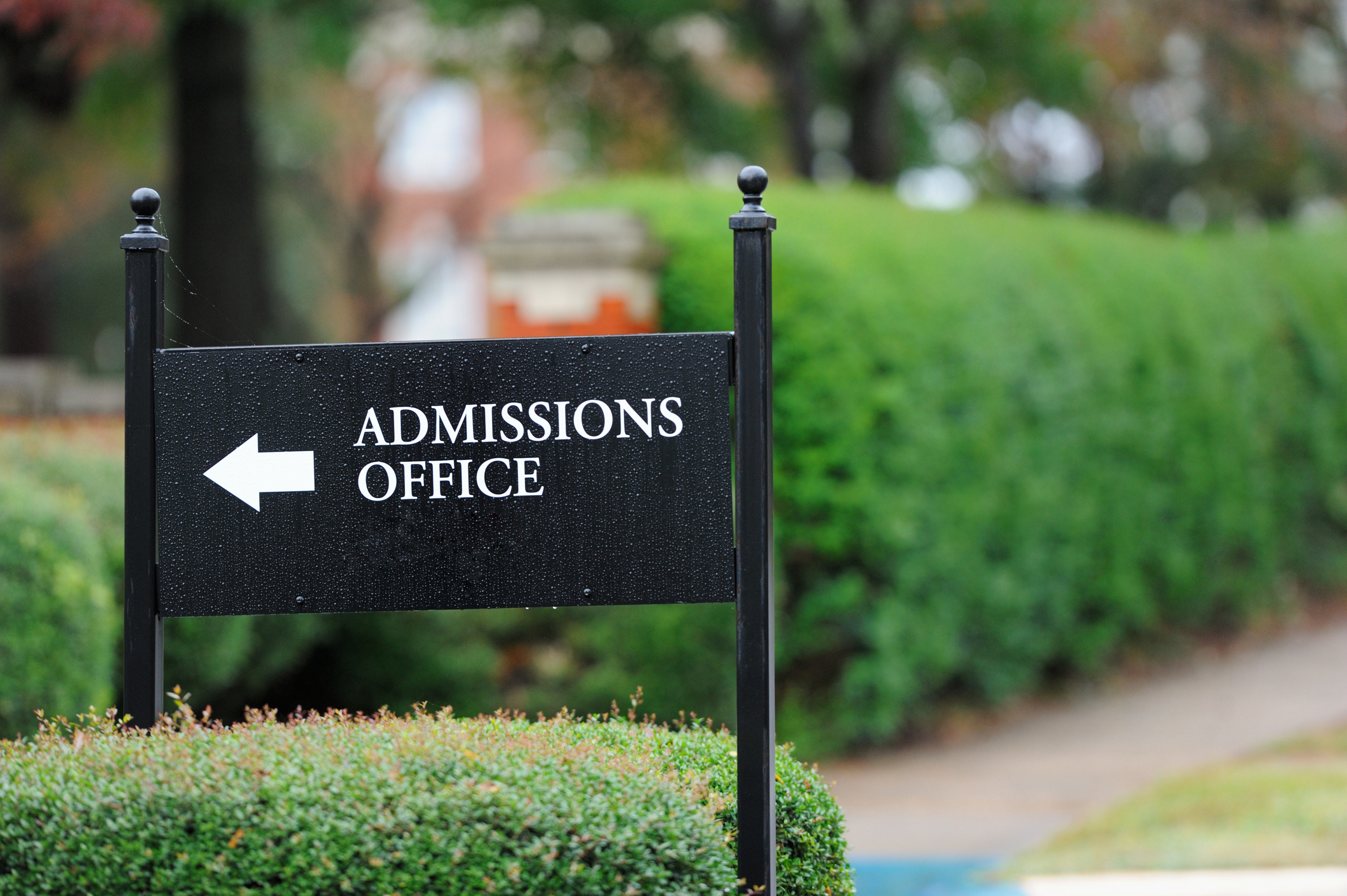Why are Americans moving south?
One part cost of living, one part politics


A free daily email with the biggest news stories of the day – and the best features from TheWeek.com
You are now subscribed
Your newsletter sign-up was successful
Americans are moving to the South in greater numbers than ever. The Associated Press reports the center of population in the United States "is on track this decade to take a southern swerve for the first time in history." While the Northeast and Midwestern regions of the country are losing residents, six of the 10 fastest-growing states came from below the Mason-Dixon line, including Texas, Florida, North Carolina, and Georgia. If the trend continues, the center of population — now located in the Missouri Ozarks — will head due south instead of west for the first time in American history. Why are Americans headed south? And what might that mean for our politics and culture? Here's everything you need to know:
Why are Americans moving south?
This has been happening for a while. Back in 2016, Pew's Stateline news service pointed out that "Snow Belt-to-Sun Belt migration" had picked up again after a lull during the Great Recession and its aftermath. The Hill says that the COVID-19 pandemic may have accelerated the trend. "We're seeing this not only occur because of Americans' desire to leave high-density areas due to risk of infection, but also due to the transformation of how we're able to work, with more flexibility to work remote," UCLA's Michael A. Stoll said in 2022.
Climate may also be a driving factor: Forbes reports on Postal Service data which suggests that many Americans "are leaving large cities and chilly states for less congested areas and warmer climes." And AP says other factors could include housing affordability, lower taxes, and the retirement of Baby Boomers. Economics matters: Fortune reported in August that Florida is attracting wealthy Americans at four times the rate of any other state.
The Week
Escape your echo chamber. Get the facts behind the news, plus analysis from multiple perspectives.

Sign up for The Week's Free Newsletters
From our morning news briefing to a weekly Good News Newsletter, get the best of The Week delivered directly to your inbox.
From our morning news briefing to a weekly Good News Newsletter, get the best of The Week delivered directly to your inbox.
Is there a racial component to this?
Yes. In 2022, The Washington Post reported on a "new Great Migration" of Black Americans from cities like New York, Los Angeles, and Chicago to southern states. (The original Great Migration was the movement of Black people fleeing the Jim Crow South to northern cities from the 1910s to the 1970s.) "The percentage of Black Americans who live in the South has been increasing since 1990," the Post reported — with the biggest gains coming in urban areas: The Black population of Atlanta more than doubled between 1990 and 2020. The Brookings Institution's William H. Frey adds that "the movement is largely driven by younger, college-educated Black Americans, from both northern and western places of origin."
What states are getting left behind?
California tops the list, though AP notes that other Western states — Alaska, Hawaii, New Mexico, Oregon, and Washington — saw a population loss in 2022. (Yahoo Finance, citing analysts from Bank of America Global Research, says data shows New York and Illinois are big losers too.) The Federal Reserve Bank of Chicago reported in July on data that showed large numbers of Californians leaving for places like Texas, Florida, and Virginia. "An acceleration of people leaving coastal California began during the first year of the pandemic," says the Los Angeles Times. Data since then shows "it continued even after lockdowns and other COVID restrictions eased." Why? The high cost of housing in the Golden State seems to be a big reason.
So is this a California versus Texas and Florida thing?
Not entirely, but you wouldn't know that from the big personalities leading those big states. Florida Gov. Ron DeSantis (R), a contender for the GOP's 2024 presidential nomination, has made California-bashing a regular part of his messaging. "I was born and raised in this state and until the last few years I rarely saw a California license plate in the state of Florida," DeSantis said in July. "You now see a lot of them. I can tell you if you go to California you ain't seeing many Florida license plates." Texas Gov. Greg Abbott, another Republican, also often plays up the influx of Californians to his state. But California Gov. Gavin Newsom, a Democrat also said to be eyeing the White House, has also taken some shots — buying ad time on Fox News inviting Floridians who don't like DeSantis' conservative agenda to "join us in California."
What does this mean for the future of American politics?
Observers are still trying to figure that out. In 2019, The Atlantic's Derek Thompson pointed out that "today's domestic migrants are often college graduates of the exceedingly liberal Generations Y and Z" who are "helping to turn southern metros into Democratic strongholds." And indeed, the influx of new residents to Georgia may have given Democrats an edge in the presidential and U.S. Senate races in 2020. On the other hand, one-time swing state Florida emerged from the 2020 and 2022 elections redder than ever. It's something that politicians are clearly thinking about — though Texas' Abbott suggests everything should even out. "We have an exchange program going on," he told the conservative CPAC conference in August. "We're getting the California conservatives, we're sending them our liberals."
A free daily email with the biggest news stories of the day – and the best features from TheWeek.com
Joel Mathis is a writer with 30 years of newspaper and online journalism experience. His work also regularly appears in National Geographic and The Kansas City Star. His awards include best online commentary at the Online News Association and (twice) at the City and Regional Magazine Association.
-
 The environmental cost of GLP-1s
The environmental cost of GLP-1sThe explainer Producing the drugs is a dirty process
-
 Greenland’s capital becomes ground zero for the country’s diplomatic straits
Greenland’s capital becomes ground zero for the country’s diplomatic straitsIN THE SPOTLIGHT A flurry of new consular activity in Nuuk shows how important Greenland has become to Europeans’ anxiety about American imperialism
-
 ‘This is something that happens all too often’
‘This is something that happens all too often’Instant Opinion Opinion, comment and editorials of the day
-
 The video game franchises with the best lore
The video game franchises with the best loreThe Week Recommends The developers behind these games used their keen attention to detail and expert storytelling abilities to create entire universes
-
 The buzziest movies from the 2023 Venice Film Festival
The buzziest movies from the 2023 Venice Film FestivalSpeed Read Which would-be Oscar contenders got a boost?
-
 America's troubling school bus driver shortage
America's troubling school bus driver shortageSpeed Read Kids are heading back to school, but they might be having trouble getting a ride
-
 5 college admissions trends to watch out for this year
5 college admissions trends to watch out for this yearSpeed Read College advisers and admissions experts say these trends will shape the 2023-2024 admissions cycle
-
 What's going on with Fyre Festival II?
What's going on with Fyre Festival II?Speed Read Convicted felon Billy McFarland claims the music festival will happen, for real this time
-
 The answer to rising home prices: smaller homes
The answer to rising home prices: smaller homesSpeed Read Builders are opting for fewer rooms and more attached styles as frustrated homebuyers look for affordable options
-
 5 illuminating books about the video game industry
5 illuminating books about the video game industrySpeed Read Cozy up with a few reads that dig into some of the most fascinating parts of video game history
-
 Everything we know about the final season of 'Stranger Things'
Everything we know about the final season of 'Stranger Things'Speed Read The Netflix hit will turn things up to eleven in its final bow ... eventually
